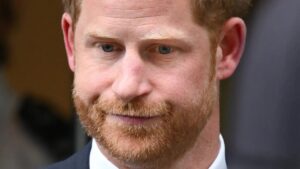In a recent interview on Sky News with Nigel Farage from GB News, former President Donald Trump raised concerns about Prince Harry’s potential visa troubles.
The issue arose when Harry and Meghan Markle relocated to the United States, prompting questions about Harry’s disclosure of drug use on his visa forms.
Trump highlighted that if Harry had indeed lied on his visa application regarding drug consumption, appropriate actions must be taken, emphasizing that special privileges should not exempt him from facing consequences.
Joining the discussion from London, Patrick Christie, a prominent presenter on GB News, expressed his views on Prince Harry’s predicament.
Christie suggested that if Harry misrepresented his drug history on the visa form, he should face the same repercussions as any other individual.
Speculating on the accuracy of Harry’s visa application, Christie humorously remarked about the possibility of Meghan Markle assisting in filling out the forms, hinting at potential discrepancies in the process.
Furthermore, Christie proposed a whimsical exchange involving Prince Harry and former President Trump, suggesting a swap deal involving American citizens causing disturbances in the UK.
However, he acknowledged the complexities surrounding Harry’s return, including potential repercussions from controversial statements made in his autobiography.
The conversation also touched upon the recent controversies surrounding Catherine, Princess of Wales, involving alleged photo manipulation and unauthorized access to her medical records.
The discussion shifted towards the challenges faced by the royal family in managing public relations amidst ongoing controversies.
Christie criticized the mishandling of various incidents, including the unauthorized release of private videos and photos, highlighting the need for better crisis management strategies.
As the scrutiny intensifies, concerns about the well-being of the royals, particularly Catherine, were raised in light of the invasive actions targeting her personal information.
Reflecting on broader societal trends, the conversation veered towards the evolving portrayal of iconic characters like James Bond in popular culture.
Speculation about the next actor to portray the legendary spy stirred debate, with contrasting opinions on maintaining traditional character attributes versus embracing diverse casting choices.
The notion of inclusivity and representation in media narratives was juxtaposed with the traditional image of James Bond as a suave, white male protagonist.
As the segment concluded, the commentators pondered the future direction of entertainment industry casting decisions, contemplating the balance between honoring established character legacies and embracing progressive storytelling approaches.
Amidst the shifting landscape of cultural representation, the debate surrounding Prince Harry’s visa status and the broader implications of privacy breaches within the royal family underscored the ongoing challenges faced by public figures in navigating personal and public scrutiny.
